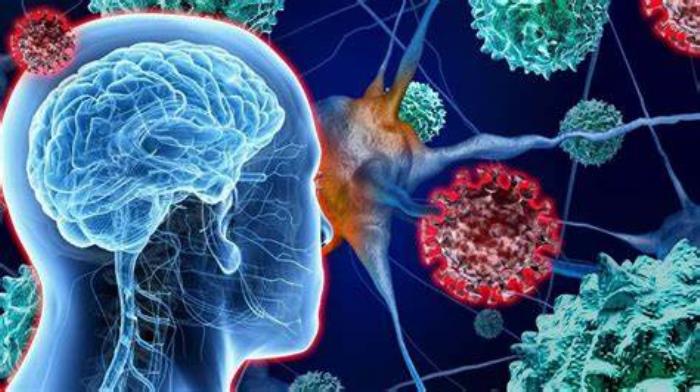Neurological complications after liver transplant surgery can significantly impact patient recovery and quality of life. These complications may arise due to various factors, including the underlying liver disease, surgical procedures, and postoperative management. Common neurological issues include cognitive dysfunction, seizures, and neuropathy. Understanding these complications is crucial for healthcare providers to ensure timely diagnosis and intervention.
Medical disclaimer: This content is for general awareness and does not replace a doctor’s consultation. For diagnosis or treatment decisions, consult a qualified specialist.
Common Neurological Symptoms After Liver Transplant
Patients may experience a range of neurological symptoms following liver transplantation. These symptoms can vary in severity and may include confusion, memory loss, and difficulty concentrating. In some cases, patients might also report headaches or mood changes. Monitoring these symptoms is essential, as they can indicate underlying complications that require further evaluation.
Causes of Neurological Complications Post-Liver Transplant
Several factors contribute to the development of neurological complications after liver transplant surgery. These include metabolic disturbances, such as electrolyte imbalances, and the effects of immunosuppressive medications used to prevent organ rejection. Additionally, pre-existing liver conditions may predispose patients to neurological issues, necessitating a comprehensive assessment during the pre-operative phase.

Role of Immunosuppressive Therapy in Neurological Issues
Immunosuppressive therapy is critical for preventing organ rejection after liver transplantation. However, these medications can also lead to neurological side effects. Drugs such as tacrolimus and mycophenolate mofetil have been associated with neurotoxicity, which may manifest as tremors, confusion, or seizures. Regular monitoring of drug levels and patient symptoms is vital for optimizing therapy and minimizing complications.
Impact of Hepatic Encephalopathy on Neurological Recovery
Hepatic encephalopathy is a condition characterized by altered mental status due to liver failure. Although it typically resolves post-transplant, some patients may continue to experience cognitive deficits. The presence of hepatic encephalopathy before surgery can increase the risk of long-term neurological complications, highlighting the importance of preoperative evaluation and management strategies.
Postoperative Monitoring for Neurological Complications
Postoperative monitoring is essential for early detection of neurological complications following liver transplantation. Healthcare providers should conduct regular neurological assessments, including cognitive evaluations and neurological examinations. Any sudden changes in a patient’s mental status or neurological function should prompt immediate investigation to determine the underlying cause and initiate appropriate interventions.
Diagnostic Approaches for Neurological Complications
Accurate diagnosis of neurological complications is critical for effective management. Healthcare providers may employ various diagnostic tools, including CT scans, MRIs, and electroencephalograms (EEGs). These imaging and monitoring techniques help identify structural or functional abnormalities in the brain, guiding treatment decisions and improving patient outcomes.

Management Strategies for Neurological Complications
Management of neurological complications after liver transplant surgery often involves a multidisciplinary approach. Treatment may include adjusting immunosuppressive medications, addressing metabolic imbalances, and providing supportive care. In cases of severe complications, neurology consultations may be necessary to tailor specific interventions, such as pharmacotherapy or rehabilitation services.
Rehabilitation Approaches for Neurological Recovery
Rehabilitation plays a vital role in helping patients recover from neurological complications after liver transplantation. Occupational therapy, physical therapy, and cognitive rehabilitation can assist patients in regaining functional abilities and improving their overall quality of life. Tailored rehabilitation programs should be implemented based on individual patient needs and recovery goals.
Long-term Neurological Outcomes After Liver Transplantation
Long-term neurological outcomes following liver transplantation can vary significantly among patients. While many individuals experience substantial recovery, some may continue to face cognitive deficits or other neurological challenges. Ongoing follow-up and support are essential to monitor progress and address any emerging issues, ensuring a comprehensive approach to patient care.
Psychosocial Aspects of Neurological Complications
Neurological complications can have profound psychosocial effects on patients and their families. Issues such as anxiety, depression, and social isolation may arise due to cognitive challenges and changes in daily functioning. Providing psychological support and counseling can help patients cope with these challenges and improve their overall well-being during recovery.
Patient Education on Neurological Risks Post-Transplant
Educating patients about the potential neurological risks associated with liver transplantation is crucial for promoting awareness and proactive management. Patients should be informed about the signs and symptoms of neurological complications, the importance of medication adherence, and the need for regular follow-up appointments. Empowering patients with knowledge can enhance their engagement in the recovery process.
Role of Family Support in Recovery from Neurological Complications
Family support plays a significant role in the recovery of patients experiencing neurological complications after liver transplantation. Family members can assist in monitoring symptoms, providing emotional support, and encouraging adherence to rehabilitation programs. Involving families in the care process fosters a supportive environment that can enhance patient recovery and overall quality of life.
Research Advances in Neurological Complications Post-Transplant
Ongoing research is crucial for improving our understanding of neurological complications following liver transplantation. Recent studies are exploring the underlying mechanisms of these complications, potential biomarkers for early detection, and novel therapeutic approaches. Advancements in this field may lead to enhanced patient outcomes and more effective management strategies in the future.
Future Directions in Managing Neurological Complications
Future directions in managing neurological complications after liver transplantation include the development of personalized medicine approaches, improved monitoring techniques, and enhanced rehabilitation strategies. Integrating multidisciplinary care teams and leveraging technology for remote monitoring may also play a pivotal role in optimizing patient outcomes and addressing neurological issues effectively.
Collaborative Care Models for Neurological Management
Implementing collaborative care models is essential for effectively managing neurological complications post-liver transplantation. These models promote communication and coordination among healthcare providers, including transplant surgeons, neurologists, psychiatrists, and rehabilitation specialists. A team-based approach ensures comprehensive patient care, addressing both physical and psychological aspects of recovery.
Importance of Follow-Up Care After Liver Transplant
Follow-up care is critical for monitoring neurological health after liver transplantation. Regular evaluations allow healthcare providers to assess cognitive function, manage medications, and address any emerging complications. Establishing a structured follow-up plan ensures that patients receive timely interventions, promoting better long-term outcomes and quality of life.
Understanding MELD Score and Its Role in Liver Transplantation
Gain insights into the MELD score and its significance in determining liver transplant eligibility. This blog explains how the score impacts patient prioritization and outcomes.
Addressing Common Concerns About Neurological Health
Patients and families often have concerns regarding neurological health following liver transplantation. Common worries include the risk of cognitive decline, the impact of medications, and the potential for long-term complications. It is essential for healthcare providers to address these concerns through open communication, providing accurate information and reassurance to patients and their families.
Best Liver Transplant in India
The Best Liver Transplant in India provides life-saving treatment for patients with end-stage liver disease, offering advanced surgical techniques and comprehensive post-transplant care for successful recovery.
Best Liver Transplant Hospitals in India
The Best Liver Transplant Hospitals in India are equipped with cutting-edge technology and expert medical teams, ensuring top-notch care and optimal recovery for liver transplant patients.
Liver Transplant Cost in India
The Liver Transplant Cost in India offers an affordable solution for patients needing liver transplantation, ensuring access to world-class care at competitive pricing.
Best Liver Transplant Surgeons in India
The Best Liver Transplant Surgeons in India are highly skilled in performing liver transplants, providing precise surgeries and personalized care to ensure the best possible outcomes for their patients.
FAQs about Neurological Complications After Liver Transplant Surgery
What are the most common neurological complications after liver transplant?
The most common neurological complications include cognitive dysfunction, seizures, and peripheral neuropathy. Each of these issues can arise due to various factors, including metabolic changes and the effects of immunosuppressive therapy.
How can neurological complications be prevented after liver transplant?
Preventive strategies include careful preoperative assessment, appropriate management of immunosuppressive medications, and regular neurological monitoring post-surgery. Additionally, addressing metabolic imbalances and providing patient education can help mitigate risks.
What should I do if I notice neurological symptoms after my liver transplant?
If you notice any neurological symptoms, such as confusion, memory issues, or seizures, it is crucial to contact your healthcare provider immediately. Timely assessment and intervention can significantly improve outcomes and prevent further complications.
Is rehabilitation necessary for recovery from neurological complications?
Yes, rehabilitation is often necessary for recovery from neurological complications. Tailored rehabilitation programs can help patients regain lost functions, improve cognitive abilities, and enhance overall quality of life.
What role does family support play in recovery?
Family support is vital for recovery, as it provides emotional encouragement, helps monitor symptoms, and assists in adherence to treatment and rehabilitation plans. Engaging family members in the care process fosters a supportive environment for the patient.
Liver transplant involves replacing a diseased liver with a healthy one from a donor, while liver resection involves removing a portion of the liver affected by disease. Transplants are typically considered for end-stage liver disease or severe liver damage, whereas resections are often used for localized tumors or conditions where part of the liver can be removed. Transplants require lifelong immunosuppressive medication to prevent rejection, while resections do not. Recovery times and risks also differ, with transplants generally having longer recovery periods and higher initial risks compared to resections. Key Differences Between Liver Transplant and Liver Resection Surgery
A living-donor liver transplant offers reduced wait times, improved outcomes, and the flexibility to schedule surgery at a convenient time, utilizing a healthier donor liver, while a deceased donor liver transplant is crucial for patients with acute liver failure or severe liver disease when a living donor is not available, ensuring life-saving options through established medical protocols. Benefits of Living-Donor Liver Transplant vs. Deceased Donor
Managing medications and side effects after a liver transplant is crucial for recovery and long-term health. Patients must take immunosuppressants to prevent organ rejection, along with other medications to manage side effects like nausea, high blood pressure, and infections. Regular monitoring, adherence to prescribed doses, and communication with healthcare providers are essential. Understanding potential side effects and how to address them can significantly improve outcomes. How to Handle Post Liver Transplant Medications and Side Effects